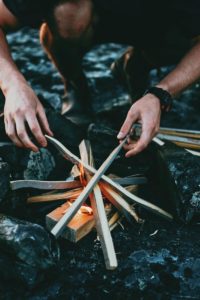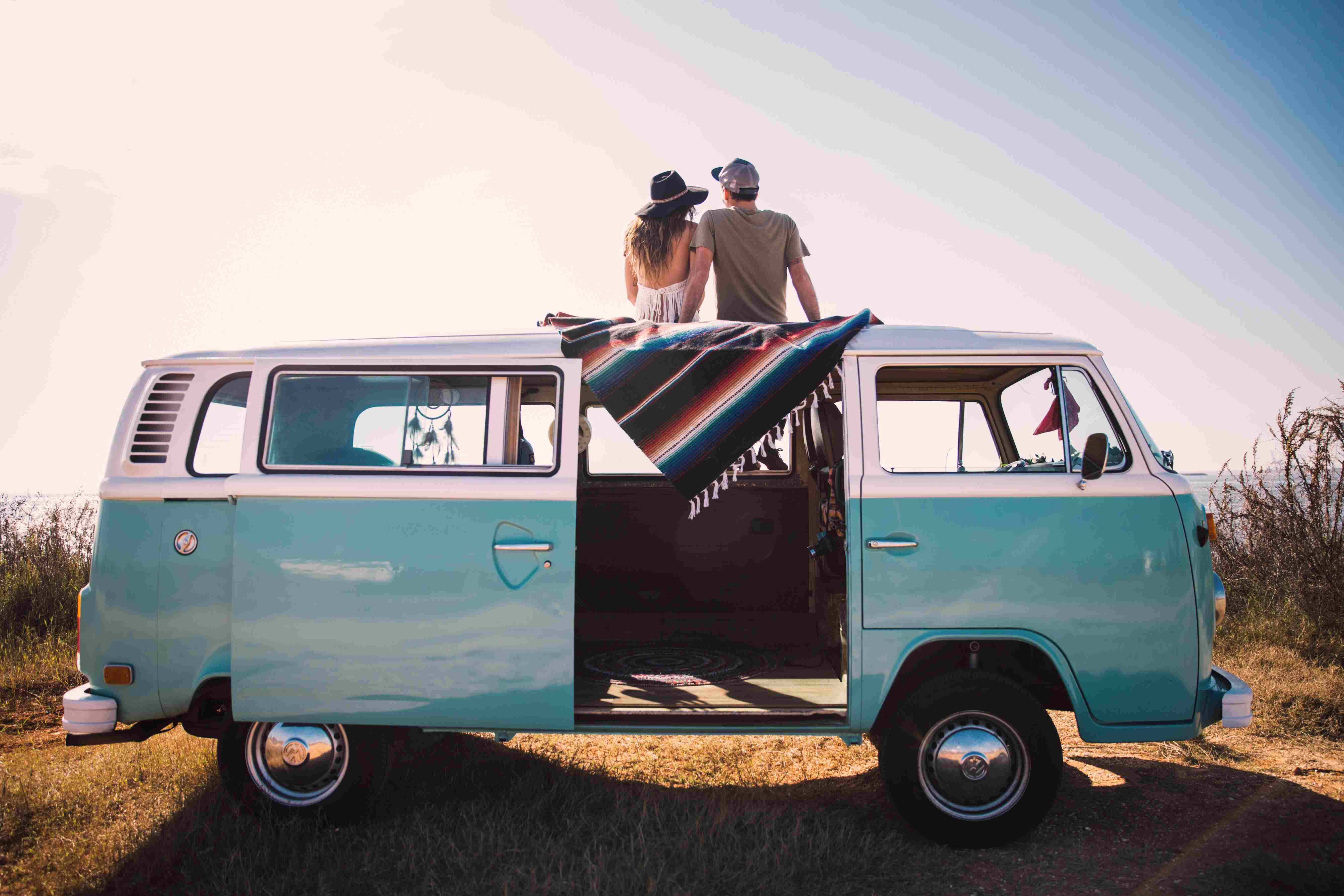Avoid classic newbie mistakes on your first trip with these tips.
Take the Right Gear.
So, you’ve planned your first camping trip. Now what? You need the proper gear. Camping is a reasonably cheap way to see the country, right? Yes and no. While camping itself doesn’t require much money, outfitting yourself with the proper gear could cost thousands. Since it’s your first time, try to borrow a few items from friends or even rent them. Below are essential items that no camper should go without.
- Tent
- Sleeping Bag
- Lanterns and headlamps (at least three light sources)
- Camping Stove
- Cooler
- Chairs
- Warm clothing (Always have an extra to keep you warm and dry if one becomes wet or sweaty)
 Pack the right food.
Pack the right food.
Packing the right food for a camping trip is challenging. You’ll need to pack enough food for your entire trip while trying not to take up too much space. A general rule of thumb 1.5 pounds of food per person per day. Also consider that if you are hiking or exerting yourself more than normal, you will need more calories than you usually do. Also, make sure you take foods with enough protein and nutrients to energize your body throughout your trip. TakeOutdoors.
Nonperishable Foods
Be sure to take food that does not require refrigeration. Your cooler is most likely your only source of keeping your food cold and you’ll need that for meats and drinks. Leave the sugary cereal, cookies, etc. at home; you don’t want to have a sugar crash in the middle of your 3-mile hike! Below are some great camping recipes as well as snacks using nonperishable foods.
- PB and Banana Sandwich
- Fresh Fruit
- Applesauce
- Nuts
- Jerky
- Trail Mix
- Farm Fresh Eggs
- Tuna Packets
Perishable Foods
Bringing perishable foods is necessary. However, you can only take as much as your cooler can hold. When camping, the only perishable foods you should take are meat and cheese. You’re camping, not dining at a 5-star restaurant! Lunch meat and cheese is a great lunch or snack and takes up little room in the cooler. Meat will stay good for a few days so if you’re camping longer than 3-4 days, take some hard sausage! Sausage will typically last for several days before opening the package and is even good up to 2 days after opening.
Store food and trash properly.
If you don’t want unwelcome animal visitors in your campsite, be a considerate camper. The best way to keep animals away is by not attracting them in the first place. All trash should be placed in a “bear bag” on a tree or in a locked receptacle provided by the park. Leave no trace, right? Also, store all food in airtight containers and kept out of your tent!
Bring spare batteries.
Before you even leave for your trip, put new batteries in your flashlights, radios and any other electronics you’ll be taking. You’ll need at least two battery-operated lanterns for the campsite and one flashlight or headlamp per camper. Then, make sure you have a spare set for each device. It’s important to store spare batteries in a waterproof container, just in case.
Know first aid and CPR.
Most likely, a medical emergency won’t happen on your trip. But, you should still be prepared. It goes without saying, but bring a first aid kit! We’ve written about how to make your own first aid kit. Also, local community agencies offer first aid and CPR training regularly.
Be ready for the weather.
Before you pack, check the forecast. Seriously. If there’s a chance of bad weather, just stay home! Be prepared to stay extra days due to weather as well. That being said, not all weather events are predicted, so you’ll have to be prepared for everything. Make sure you have maps of the area in case you need to bail out fast due to incoming weather.
- Emergency Blanket
- Rain Poncho
- Extra Socks
- Extra Towels
- Tarp

Bring your own wood.
Don’t rely on your campsite to have ample firewood. If it has rained recently, most of the wood may still be wet. Or, the campsite just may not have any. Bringing matches, firewood, and dry kindling isn’t a bad idea if you have space or aren’t hiking to a campsite.
In relation to lighting fires, also be aware of fire restrictions in the area and always build your fire in an established fire pit. A warm fire is one of the best parts about camping, but it also comes with the most responsibility.
Now get out there, be safe, and enjoy the great outdoors!

